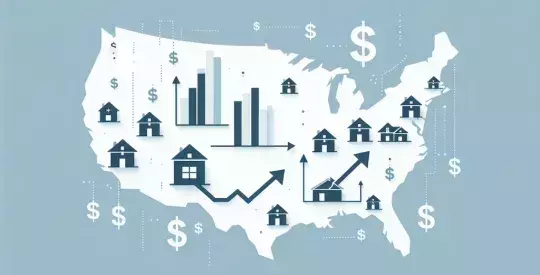
A recent comprehensive survey illuminates a striking divergence in perspectives among different generations regarding the nation's economic trajectory, the landscape of interest rates, and the future of the housing market. This analysis uncovers that while a notable portion of the populace harbors apprehension about the economy's immediate future, younger demographics exhibit a resilient optimism. This generational chasm in financial outlook could significantly shape consumer behavior and market dynamics in the years to come, particularly within the housing sector where affordability continues to be a formidable challenge for many aspiring homeowners.
The findings suggest that the varying life stages and economic exposures of each generation contribute to their distinct viewpoints. Older generations, having witnessed multiple economic cycles, tend to adopt a more cautious stance. Conversely, younger individuals, who have largely navigated a period characterized by high housing costs and fluctuating mortgage rates, paradoxically maintain a hopeful outlook. This inherent optimism among the youth could serve as a powerful impetus for future housing demand, underscoring their determination to achieve homeownership despite persistent financial hurdles.
Generational Perspectives on Economic Trajectory
Americans are largely divided in their opinions concerning the country's economic future, interest rate trends, and the state of the housing market, according to a recent survey conducted by Realtor.com. A substantial 42% of participants anticipate an economic downturn within the next twelve months. This sentiment is particularly pronounced among Baby Boomers, with half of them forecasting a worsening economy, in stark contrast to just 31% of Gen Z respondents who share this pessimistic view. This generational gap underscores differing economic experiences and expectations, with older cohorts tending towards greater caution while younger generations maintain a more hopeful outlook despite prevailing economic conditions.
The survey’s insights reveal that younger individuals, including Gen Z and Millennials, are remarkably more optimistic about economic stability and potential improvements. Having matured during a period marked by elevated housing expenses and unpredictable mortgage rates, these generations are more inclined to believe that market conditions will either remain stable or enhance. This enduring optimism is identified as a crucial driver for future housing demand, as younger prospective buyers remain committed to entering the market, even as affordability continues to be a significant barrier. Their resilience and positive outlook suggest a continued aspiration for homeownership, challenging the notion that current market difficulties would deter their ambitions.
Divergent Views on Housing and Interest Rate Futures
The sentiment surrounding interest rates is remarkably balanced across various age groups, with roughly a third expecting an improvement, another third anticipating no change, and the final third bracing for a deterioration in the coming months. Baby Boomers show the highest confidence in improving rates at 40%, whereas Gen X, Millennials, and Gen Z exhibit slightly less optimism, hovering around 30-32%. This near-even split highlights the prevalent uncertainty regarding monetary policy and its impact on borrowing costs, reflecting a lack of consensus on where rates might stabilize or trend in the near future.
Regarding the housing market, approximately 40% of all respondents predict minimal changes over the next year. However, a generational divide emerges, with younger participants more likely to hold a neutral or positive perspective. Only 25% of Gen Z members foresee a decline in the housing market, a figure considerably lower than the 30% among Millennials, 37% for Gen X, and 36% among Baby Boomers. This indicates that despite the current challenges in housing affordability, younger generations remain more resilient and hopeful about their prospects in the market. Their sustained optimism could contribute to continued demand, even as older generations harbor more cautious or pessimistic views on the market's trajectory.
